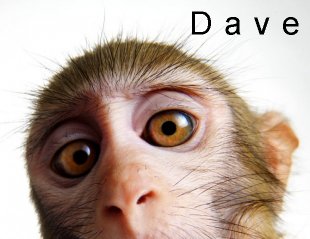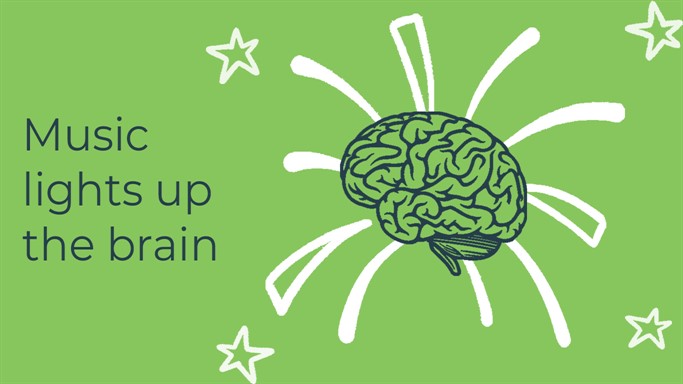Welcome to our forum. A Message To Our New and Prospective Members . Check out our Forum Rules. Lets keep this forum an enjoyable place to visit.
Currently working on errors from the latest (SimplePress) forum update. Many issues have been resoled and others are being worked on. Thank you for your patience.
 Topic RSS
Topic RSS Related Topics
Related Topics




 (1 votes)
(1 votes) Advanced member
 Offline
OfflineThere is much talk about absolute pitch and relative pitch. The absolute, where you can identify directly one note based on just hearing it on any instrument, while relative hearing is more about identifying the note with the help of having identified nearby notes.
I am going to discuss another phenomenon that seems to be my case more than absolute or relative, and since I have not heard of it before, I will name it simply
Muscular Pitch.
If I hear a note played *on violin* I can without making any sound or trying, IF and ONLY IF I have the violin in the hand supported normally on the left shoulder, instantly find the position of the played note (without any trials, the finger goes directly to the correct place). This is obviously some kind of muscular hearing, because its not my ear or my brain who recognizes the note, but the muscles. And I really have to hold the violin in normal position.
Can anybody explain this phenomenon and how to take advantage of it? (I am not a person with good intonation in general.)
Honorary advisor
Regulars
I am jealous! I am very weak at playing by ear. I can get close, usually one or two notes high. And then I will play it as sharp when it is supposed to be natural, play it as natural when it should be flat. I am getting better at it though.
You could learn songs this way, especially if you can slow the music down and play one note behind the music. Maybe.
Dave

Honorary advisor
Regulars
 Offline
OfflinePro advisor
Regulars
Muscular memory isn't anything new. It's how many guitar players play. Jimi Hendrix actually talked about this way back when. When you''re hearing the tones of the music in your head your hands just go in the right place because of knowing your hand positions well.
I would say keep practicing all the hand positions on the violin. Don't get stuck in first position because then your muscular memory is being very limited. Yes, you can compare it to typing on a keyboard too. Once you learn to type well, your fingers just flow over the right letter without thinking about it. It's all about the correct position.
Dave, you made a great comment…If you have the tools to slow down music while keeping the same pitch, it's a great way to learn a song by ear.
Honorary advisor
Regulars
Regulars
 Offline
Offline








Aren't most of us here learning/playing an instrument as a 'hobby' (myself included)?
...so, why expect so much in return?
I think it's AMAZING we even make a stab at it!
Learning as well as just playing the violin/viola/cello is an EXTREMELY complex endeavor!
imho... Kids: not only have the benefit of learning without having to deal with, or worry about, essential things grownups do every day. They're usually put in a structured situation (weekly classes, lessons) with EVERYDAY coaching from parents TO PRACTICE - usually pretty effective discipline. Some kids are very lucky to hear & experience music played from the day they are born! I think it becomes like learning a familiar language.
Grownups don't have those benefits, plus it's hard for many of us grownups to focus such discipline on ourselves when we have so many other priorities.
There is NO muscle memory.
...just pathways to different types of info storage in the brain. The brain controls all co-ordination of this info and implements action.
WHAT EVERY GROWNUP CAN DO: listen to a lot of music, try to focus on what you do & what you sound like, while practicing - to make sure what you learn ends up in a longer-term storage spot that can be accessed later.
- Re-use a pathway (practice a task you learn, repeatedly)
- Form multiple pathways to the same spot (practice other things associated, along with each task/idea you learn).
Josh Turkett - 3 Essential Ingredients of an Effective Practice Session Thread
Now, 'IF' the top professional musicians, who have already mastered their craft - STILL have to practice TWO HOURS EVERY DAY to maintain proficiency... what does that say about us?
How many hours a day do the World’s greatest classical musicians practice?

How many of us can free up our mind & schedule time to play even a little bit, every day?
I think it IS magic to make me want to keep coming back for more!
- Emily
Regulars
 Offline
Offline





ELCBK said
There is NO muscle memory.
...just pathways to different types of info storage in the brain. The brain controls all co-ordination of this info and implements action.
Not literally, no. Psychologists call it procedural memory. I suppose it's more about training and sorting out motor nerve and neuron interconnections and firings.
Andrew
Verified human - the ignominy!
Regulars
 Offline
Offline








'Procedural' memory is still stored in the brain, pretty deep/long-term storage - the subconscious. Stimuli still triggers your brain to send the signals that make your body respond, but it's such a strong, well-worn path (from MUCH repetition) - it's like a short cut.
Wish I had many years of self-disciplined, efficient music practice, to make sure my learning was stored in long-term memory & my synapses less 'plastic' - just stronger!

Regulars
 Offline
Offline






I dont know the correct scientific definition.. i know what the meaning of both are to me in my playing though and can describe..
Ill call it memorizing when I know how a tune goes and can play it from A MEMORY located somewhere in me head. BUT...if i have to talk or think about something else.. ill mess up eventually.
there is a very short list of tunes that i could play and talk to someone at same time..or say HUP to signal a tune change without losing where i am. 🙂 I think that memory is deeper and has become more solid. If i dont play that tune for a while like longer than a couple of weeks..once i start playing it comes back. memorized tunes fade quicker and im back to basically trying to learn it again. granted its not as long as when i first tried but its not like one i think is really learned.
another thing ive noticed is alot of times if im trying to learn something by ear..take for example the first note. more often ( not all the time ) now without thinking i can just go to that first note. it just happens. I guess it could be saying its a guess but its like i KNOW thats the note without doubt. weird.
why the rest of the notes following dont behave that way idk...sometimes alot of them do..but in general the process is much easier than when i started and is related to practicing learning a tune without the sheet music. and granted we are talking about what would be considered easier melodies. and ive done nothing but those types of melodies so im limiting what im concentrating on trying to learn.
im in my mid 50s and before 2017 never even picked up a violin so i think one can learn and develop some muscle memory or procedural subconscious type memory even later in life. I think focusing on something very specific helps..not trying to spread myself too thin over trying to learn a bunch of new stuff at once. Really listening to a recorded version alot ahead of time is one of the best things to aide. its like you give your brain a bit of a running start or something to build on..a foundation.
id call the fact that i dont have to even think about where fingers are supposed to go for a D scale muscle or subconscious or procedural memory..
Regulars
 Offline
Offline






I think there needs to be motivation for me to expend energy on a tune. If i dont care for it i wont attempt it. UNLESS in my case theres ones ive had to learn because it was part of a concert setlist. or people play it all the time in session and i want to be able to play with them.
If it wasnt for that i wouldnt learn them.. i may be able to play them but i wouldnt learn them.
Funny thing is..sometimes those tunes i once disliked become a favorite. which gives me motivation to give some more i dislike a shot. 😀










I think muscle memory is a pretty well known and accepted term, and most understand that it deals with repetitive action with a neurological result in the brain.
I think the skill of typing is a good demonstration of muscle memory. I also type well (probably the most worthwhile course I took in high school).
When you type well, you type words, not letters--i.e., you are thinking about the words you are needing to type, not the individual letters.
I've found learning the violin is similar--there are patterns, & when you have practiced (and practiced) them enough, you think of the patterns more than the individual notes.
When you look at (or hear) a piece of music, you start to recognize the patterns. And I suppose this is both visual and auditory--with some people better at one than the other.
I also came across this article recently, with accompanying video, that discusses music and dementia - how "procedural memory" (aka muscle memory--gained from repetition) remains intact despite other diminished functions in dementia patients.
Characterize people by their actions and you will never be fooled by their words.
1 Guest(s)


 Log In
Log In Register
Register


















 Online
Online
